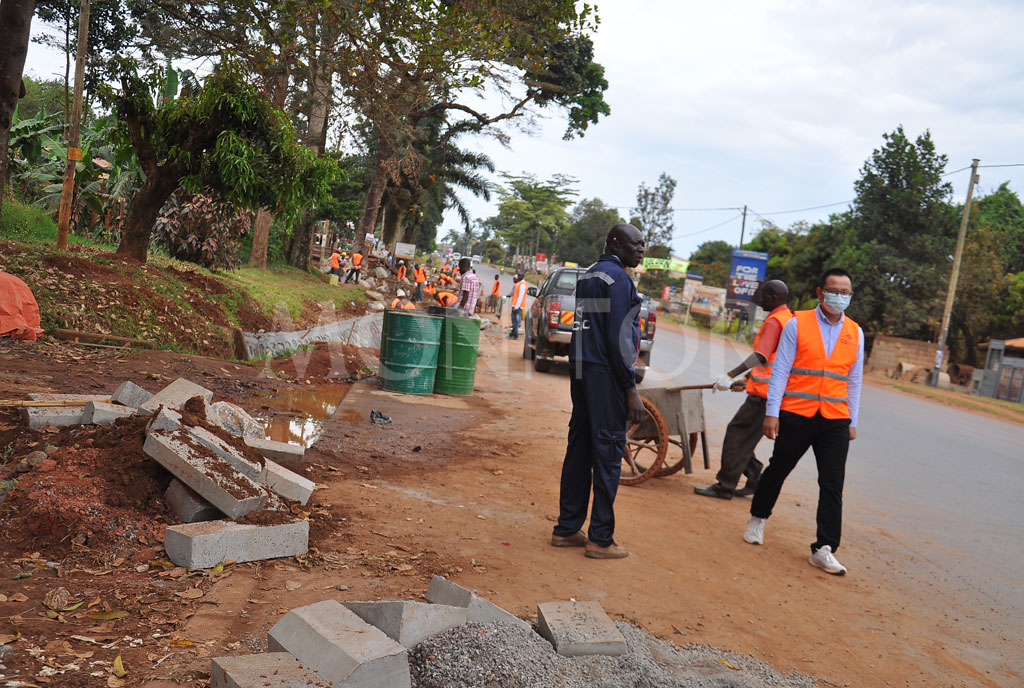Prime
Contractors on govt projects threaten to stop work over pay

Contractors say some of them have not been paid for work done since January 2021. Photo | Eve Muganga
What you need to know:
- Engineers and contractors under Uganda National Association of Building and Civil Engineering Contractors say government has not paid many of them for completed and ongoing projects for over a year.
Engineers and contractors under Uganda National Association of Building and Civil Engineering Contractors (UNABEC) have warned government that they will seek legal or worse still, industrial action over months of non-payment for offered services.
In an April 27 petition addressed to Speaker of Parliament Anita Annet Among and signed by Mr JamesOne Olonya and Ms Elizabeth Muhebwa, the UNABEC president and executive director, respectively, Uganda National Association of Building and Civil Engineering Contractors, which brings together 396 contractors and companies engaged in construction, said that some of its members working on government projects have not been paid since January 2021, which has exposed them to a number of challenges.
ALSO READ: Tayebwa asks IGG to probe school project
This, members says, has led to accumulation of tax arrears and penalties, surge in interest payments and the risk of losing collateral against which some members drew loans from banks to execute government projects.
A case in point, the petition points out, is Uganda National Roads Authority (UNRA), a major employer of members dealing in road construction, which holds more than Shs500b in unpaid arrears to local contractors dating back to January 2021.
“The situation, RT Hon Speaker, is getting out of hand, as contractors will be left with no option but to seek legal or worse, industrial action against government if nothing is immediately done to address this matter,” the petition reads in part, noting that despite a number of engagements held with the Ministry of Finance, nothing has come to fruition.
In a March 16 meeting, for instance, the petition noted, Finance Minister Matia Kasaija had, among others, pledged to release the remaining 25 percent of the approved budget for the third quarter of the 2021/22 financial year to pay a relative portion of the contractors, urge Cabinet to reverse budget cuts for agencies involved in infrastructure development, issue a commitment letter to UNABEC as a tool to restore confidence among lending institutions and suppliers and engage Bank of Uganda to relive pressure on non-performing loans due to contractors.
Sadly, the petition noted: “It is more than five weeks later, and none of the above pledges have been fulfilled,” noting that contractors have been excluded from fair treatment by its own government, hence members cannot maintain operations since government has become culpable by this grave breach of its obligation to contractors.
It was not immediately clear how much government owes UNABEC members.
At the weekend Mr Kasaija told Daily Monitor that whereas government would want to pay everyone, it is faced with a number of difficulties.
“This is a problem of availability of money, not because the spirit is not willing. Sometimes we are confronted by difficulties,” he said, referring to this newspaper to Finance Permanent Secretary Ramathan Ggoobi.
However, efforts to get a comment from Mr Ggoobi were futile by press time as his known mobile phone numbers were out of reach.
UNABCEC, according to the petition, contributes more than 12 percent to gross domestic product, thus the petition noted, it is critical that the sector is supported to function efficiently.
Mr Allan Ssempebwa, the UNRA spokesperson, who acknowledge that they had accumulated the debt, said this is a general problem that was not unique to UNRA.
“We rely on government for funding. Sometimes because of other roles for accomplishment this money does not come in readily as we need it. We continue to engage and as the money is released we will clear our debt obligations,” he said.
Functioning efficiently
UNABEC also noted that delayed payments has been, and continues to be a major factor that limits participation of local contractors in government projects.
UNABEC also noted that whereas it recognise the current financial constraints as evidenced through budget cuts, the Speaker should know that the sector represents the backbone of most developing economies and it is critical that it functions efficiently.




